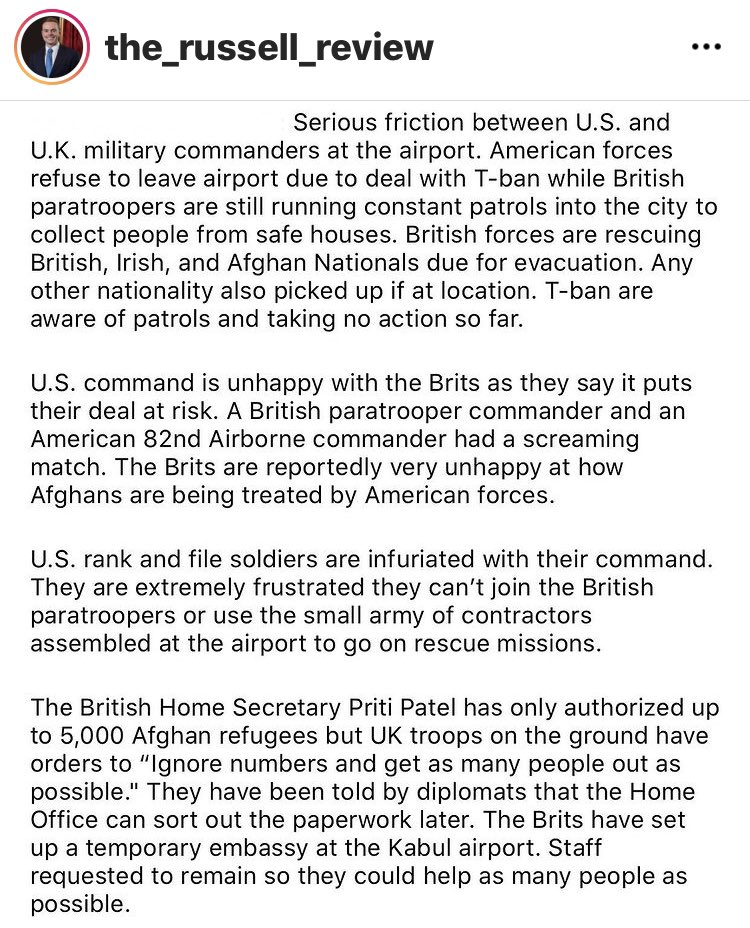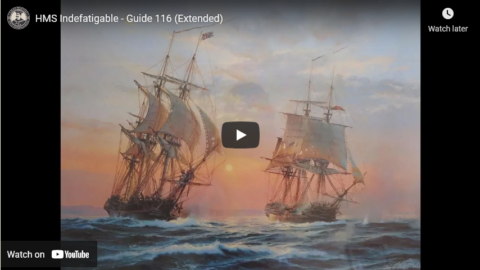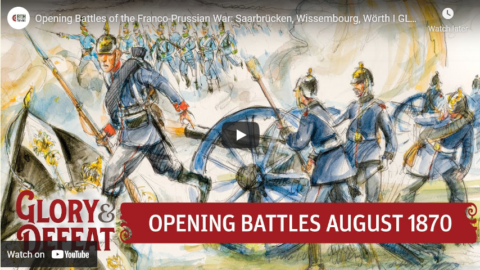So, umm, why does a worker for the state need a countervailing power to protect her from the state?
Sure, we can understand this if she’s working for the bastard capitalists. They merely want to maximise their profit and screw the workers while doing so – as we all know. But government is omniscient, omnipresent and omnibenevolent. It cannot be true that someone working for government is in need of protection from government. Because all those fine folks that make up government simply could not allow it to be that state workers don’t gain adequate wages.
Seriously, come on, this is the Progressive insistence. That getting government to do things saves us from the ravages we endure if the capitalists do them.
But now survey the actual American workplace. Unions in the private sector pretty much don’t exist any more. It is the government workforces that are unionised, making up the vast majority of union members in the country. From that pattern of union existence we have to conclude that government screws the workers rather more than the capitalists do. Otherwise why would people desire let alone need the protection of unions when working for government?
Tim Worstall, “The Public Union Proof That The Progressive State Doesn’t Work”, Expunct, 2021-05-11.
August 21, 2021
QotD: Why do government workers need unions?
August 20, 2021
Battle of Colombey-Nouilly – Strasbourg Under Siege I GLORY & DEFEAT Week 5
realtimehistory
Published 12 Aug 2021Sign up for Curiosity Stream and get Nebula bundled in and SAVE 26%: https://curiositystream.com/realtimeh…
After the opening battles of the Franco-Prussian War, the German armies have suffered heavy casualties but were also able to stop French plans in their tracks. Now the French are withdrawing towards Metz and the symbolic city of Strasbourg is under siege.
» THANK YOU TO OUR CO-PRODUCERS
John Ozment
James Darcangelo
Jacob Carter Landt
Thomas Brendan» OUR PODCAST
https://realtimehistory.net/podcast – interviews with historians and background info for the show.» LITERATURE
Arand, Tobias: 1870/71. Die Geschichte des Deutsch-Französischen Krieges erzählt in Einzelschicksalen. Hamburg 2018Mährle, Wolfgang (Hrsg.): Nation im Siegesrausch. Württemberg und die Gründung des Deutsches Reichs 1870/71. Stuttgart 2020
Milza, Pierre: L’année terrible. La guerre franco-prussienne septembre 1870 – mars 1871. Paris 2009
Roux, Georges: La Guerre de 1870. Paris 1966
» SOURCES
Bodenhorst, Georges: Le siége de Strasbourg en 1870. Paris. u.a. 1876Engels, Friedrich: “Notes on the war, No. 5”, in: The Pall Mall Gazette Nr. 1712 vom 9. August 1870
Engels, Friedrich: “Der Deutsch-Französische Krieg 1870/71“. Sechzig Artikel aus der Pall Mall Gazette. Berlin (Ost) 1957
Fontane, Theodor: Der Krieg gegen Frankreich. Bd.1 und 2. Berlin 1873
» OUR STORE
Website: https://realtimehistory.net»CREDITS
Presented by: Jesse Alexander
Written by: Cathérine Pfauth, Prof. Dr. Tobias Arand, Jesse Alexander
Director: Toni Steller & Florian Wittig
Director of Photography: Toni Steller
Sound: Above Zero
Editing: Toni Steller
Motion Design: Philipp Appelt
Mixing, Mastering & Sound Design: http://above-zero.com
Maps: Battlefield Design
Research by: Cathérine Pfauth, Prof. Dr. Tobias Arand
Fact checking: Cathérine Pfauth, Prof. Dr. Tobias ArandChannel Design: Battlefield Design
Contains licensed material by getty images
All rights reserved – Real Time History GmbH 2021
“They were there to debate Afghanistan, a far-away country of which it turns out that we know even less than we thought”
The British government recalls Parliament to debate the situation in Afghanistan (not that there’s much to be done at this late stage, but formalities are at least being observed in a perfunctory manner):
The House of Commons was full, for the first time since last March. Members of Parliament had been brought back from their holidays, from West Country campsites and from Greek resorts, in a repatriation operation that puts the Foreign Office to shame.
They were there to debate Afghanistan, a far-away country of which it turns out that we know even less than we thought. It was only last month that Boris Johnson was assuring MPs that “there is no military path to victory for the Taliban”, although we now know that path was straight along the road to Kabul, as fast as their trucks could carry them.
Now Johnson was back to explain that things had turned out to be a bit more complicated than he thought. Or perhaps a bit simpler: we’ve gone, they’re back. Parliament was getting eight hours to discuss this, although it was too late to do very much about it. It wasn’t so much shutting the stable door after the horse had bolted as holding a long discussion about the history of equine care as the stallion in question disappeared over the horizon.
Still, the atmosphere was jolly. Many of these MPs haven’t seen each other in over a year. There was a first-day-of-term feel to things. With Parliament’s Covid restrictions lapsed, the Conservatives were wedged in together in the small, windowless chamber, barely a facemask in sight. The government’s instructions are still to wear masks in crowded places, but the Conservatives view Covid as some sort of socialist conspiracy that will go away if they ignore it. Or maybe they just feel that rules are for the little people.
Labour MPs had at least nodded to social distancing, sitting about 18 inches apart from each other. This is, admittedly, easier when there aren’t very many of you. The opposition benches were a sea of masks. Only the Democratic Unionists, who like the Tories see illness as a sign of moral failure, were a lone island of uncovered faces.
Johnson’s statement was, as ever, a masterpiece of bare adequacy. It eloquently just about dealt with the matter in question, magisterially pretty much covering the bases. The speechwriters, one sensed, must have been working on the words late into the previous afternoon. They had gone through as many as one draft as they tried to come up with something that, if it didn’t deal with every complex nuance of the Afghan tragedy, at least asked the question that Johnson lives by: “Will this do?”
The situation in Afghanistan was a “concern”, the prime minister explained, with what might, in another context, have been a brilliantly comic understatement. Over the past 20 years, the British had worked for a better future for the people of Afghanistan. “Some of this progress,” the prime minister said, “is fragile”, which is certainly one way of putting it.
What had gone wrong with our intelligence services, several people asked, that they had so comprehensively failed to see this coming? Be fair, replied Johnson, even the Taliban had been surprised by the speed of their own advance.
On the US Naval Institute Blog, CDRSalamander notes the only speech in the House of Commons during that debate that grabbed and held the attention of the entire body:
Let’s back away from the problem at hand a bit … and then back up further. I mentioned it earlier, but let’s bring it up again; national humiliation. There are different aspects of this growing humiliation that are already manifesting itself, the first of which is how others look at us.
Let’s start with our closest friend and take a moment to listen to a speech earlier today in the British House of Commons by Tom Tugendhat, MP.
The mission in Afghanistan wasn’t a British mission, it was a Nato mission. … And so it is with great sadness that I now criticise one of them. … To see their commander-in-chief call into question the courage of men I fought with — to claim that they ran. It is shameful. … this is a harsh lesson for all of us and if we are not careful it could be a very, very difficult lesson for our allies. … to make sure we are not dependent on a single ally, on the decision of a single leader, but that we can work together with Japan and Australia, with France and Germany, with partners large and small, and make sure we hold the line together.
That is our closest friend outlining a loss of confidence. That is just one datapoint from a friend, but it is safe to say that it is probably somewhere in the center of opinion.
What are those nations who are not our friends thinking? I don’t think I need to spend all that much time on discussing how emboldened they are. It is self-evident to anyone who reads USNIBlog.
On the ground, troops of 2nd Battalion, The Parachute Regiment are actively involved in escorting British and Afghani civilians from safe houses to Kabul airport for evacuation:
At least one NATO country hasn’t forgotten the civilians who have been left behind during the precipitate withdrawal by US troops.
HMS Indefatigable – Guide 116 (Extended)
Drachinifel
Published 6 Apr 2019HMS Indefatigable, a razee frigate of the British Royal Navy, is today’s subject.
Want to support the channel? – https://www.patreon.com/Drachinifel
Want to talk about ships? https://discord.gg/TYu88mt
Want to get some books? www.amazon.co.uk/shop/drachinifel
QotD: First Ministers Conferences
What is the point of a First Ministers Conference?
There is no actual necessity for them, you understand. The federal and provincial governments are quite able to function within their respective jurisdictions without their leaders dashing off across the country at regular intervals to quiver their jowls at each other. The first such meeting was not held until 1906. Just 10 more “dominion-provincial conferences” occurred over the next 40 years. Not until the 1950s did they become the semi-annual affairs we know today. That this was also when the TV cameras arrived is possibly not coincidental.
If there were actual business to transact, it could just as easily be arranged by subordinates, or over the phone, or via video-conference. Or if an issue were so thorny that it genuinely required a fleshly first-ministerial encounter, the prime minister could always meet bilaterally with the premier or premiers involved, as Stephen Harper did.
But a full-on, capital-F First Ministers Conference, official cars, flag-backed lecterns and all? There is invariably but one purpose to these: for the 10 premiers to corner and harass the prime minister, using the imbalance in their numbers to depict the feds as the outlier. Sometimes this is in furtherance of the premiers’ perennial campaign for more federal cash. Sometimes, as in the current exercise, the point seems to be conflict for conflict’s sake. But always — always — it is theatre.
Only it is theatre of a peculiar kind: with the curtains drawn and the sound down, the audience being instead entertained by periodic reports from agents for each of the actors about who said what. Thus the breathless dispatches from reporters orbiting the conference — they are kept well away from the actual meeting room — every line of it originating from sources, federal or provincial, with a professional interest in puffing one leader or the other.
Andrew Coyne, “A semi-annual opportunity for premiers to strut and preen and accomplish nothing”, National Post, 2018-12-07.
August 19, 2021
Three Greenwood Tools You Can Make
Rex Krueger
Published 18 Aug 2021Make a froe-club, wooden wedges, a huge mallet and a riving break, all from scrap wood.
More video and exclusive content: http://www.patreon.com/rexkrueger
Get the Mallet & Sawhorse plans!Joiner’s Mallet
Video: https://youtu.be/sq3K6dLaquk
Plans: https://www.rexkrueger.com/store/plan…Low Japanese Saw Horse
Video: https://youtu.be/j7O7Efrzvv0
Plans: https://www.rexkrueger.com/store/2d7p…
———————————————————————-Tools in this Video:
Lee Valley Froe: https://www.leevalley.com/en-us/shop/…
(I’ve never tried it. I have no opinion on it.)Gransfors Bruk Large Carving Axe: https://amzn.to/3iWtpen
(Affiliate)———————————————————————-
Get My New Book, Everyday Woodworking: https://amzn.to/3uQtdQr
Check out my new site: https://woodworkforhumans.com
———————————————————————-
Sign up for Fabrication First, my FREE newsletter: http://eepurl.com/gRhEVT?
———————————————————————-
Wood Work for Humans Tool List (affiliate):
*Cutting*
Gyokucho Ryoba Saw: https://amzn.to/2Z5Wmda
Dewalt Panel Saw: https://amzn.to/2HJqGmO
Suizan Dozuki Handsaw: https://amzn.to/3abRyXB
(Winner of the affordable dovetail-saw shootout.)
Spear and Jackson Tenon Saw: https://amzn.to/2zykhs6
(Needs tune-up to work well.)
Crown Tenon Saw: https://amzn.to/3l89Dut
(Works out of the box)
Carving Knife: https://amzn.to/2DkbsnM
Narex True Imperial Chisels: https://amzn.to/2EX4xls
(My favorite affordable new chisels.)
Blue-Handled Marples Chisels: https://amzn.to/2tVJARY
(I use these to make the DIY specialty planes, but I also like them for general work.)*Sharpening*
Honing Guide: https://amzn.to/2TaJEZM
Norton Coarse/Fine Oil Stone: https://amzn.to/36seh2m
Natural Arkansas Fine Oil Stone: https://amzn.to/3irDQmq
Green buffing compound: https://amzn.to/2XuUBE2*Marking and Measuring*
Stockman Knife: https://amzn.to/2Pp4bWP
(For marking and the built-in awl).
Speed Square: https://amzn.to/3gSi6jK
Stanley Marking Knife: https://amzn.to/2Ewrxo3
(Excellent, inexpensive marking knife.)
Blue Kreg measuring jig: https://amzn.to/2QTnKYd
Round-head Protractor: https://amzn.to/37fJ6oz*Drilling*
Forstner Bits: https://amzn.to/3jpBgPl
Spade Bits: https://amzn.to/2U5kvML*Work-Holding*
Orange F Clamps: https://amzn.to/2u3tp4X
Screw Clamp: https://amzn.to/3gCa5i8Get my woodturning book: http://www.rexkrueger.com/book
Follow me on Instagram: @rexkrueger
How much formal school time can kids miss before it impacts their long-term prospects?
Many years ago, when my son went to Kindergarten, I discovered that a lot of other parents were concerned that if their child missed much — if any — time in class, it would utterly destroy their chances of whatever hopes and dreams they may cherish for a fruitful and productive life in the working world. And by “concerned” I man “bat-shit insanely worried” that even a day or two would be enough to blight the child’s life forevermore. And remember, these were the parents of Kindergarten or Grade 1-3 children. In the time since then, I doubt very much that parents have become more relaxed in this regard, so the re-assurances from Scott Alexander are well-timed, but may still not reach the people who most need to hear them:
Back when the public schools were closed or online, someone I know burned themselves out working overtime to get the money to send their kid to a private school. They figured that all the other parents would do it, their kid would fall hopelessly behind, and then they’d be doomed to whatever sort of horrible fate awaits people who don’t get into the right colleges.
I hear this is happening again now, with more school closures, more frantic parents, and more people asking awful questions like “should I accept the risk of sending my immunocompromised kid to school, or should I accept him falling behind and never amounting to anything?”
(see also this story)
You can probably predict what side I’m on here. Like everyone else, I took a year of Spanish in middle school; like everyone else who did that, the sum total of what I remember is “no hablo Espanol” — and even there I’m pretty sure I forgot a curly thing over at least one of the letters. Like everyone else, I learned advanced math in high school; like everyone else, I can do up to basic algebra, the specific math I need for my job, and nothing else (my entire memory of Algebra II is that there is a thing called “Gaussian Elimination”, and even there, I’m not sure this wasn’t just the name of a video game). Like everyone else, I once knew the names and dates of many important Civil War battles; like everyone else — okay, fine, I remember all of these, but only because the Civil War is objectively fascinating.
And I think that’s the whole point. We learn lots of things in school. Then we forget everything except the things that our interests, jobs, and society give us constant exposure/practice to. If I lived in Spain, I would remember Spanish; if I worked in math, I would remember what Gaussian Elimination was. I think a lot of the stuff you’re exposed to and interested in, a sufficiently curious child would learn anyway; the stuff you’re not goes in one ear and out the other, hopefully spending just enough time in between to let you pass the standardized test.
Even beyond this, school is repetitive. I learned the same Civil War facts in fifth, eighth, and eleventh grade. I think I read The Giver in multiple English classes. And this is just the stuff it’s embarrassing to have repeated. The actually important skills — how to write essays, how to cite sources — get deliberately repeated year after year.
(I still have no idea how to cite a source properly, except a vague memory that something called “MLA Format” was very important, and that there might have been another thing called “Chicago Style” unless I am confusing it with pizza. When I actually need to cite something, I hit the “Cite” button on the top right of PubMed and do whatever it says.)
So my prediction is that an average student could miss a year or two of school without major long-term effects. Their standardized test score would be lower at the end of the two years they missed than some other student who had been in school the whole time. But after a short period they would equalize again. I don’t think you need to burn yourself out working overtime to send your kid to a private school, I don’t think you need to risk your immunocompromised kid’s health to send her to the classroom, I think you can just chill.
Parents who are concerned that the schools are spending too much time indoctrinating rather than teaching their students have a totally different set of concerns, which are outside the scope of this particular discussion.
Hill SMG/Pistol: Inspiration for the FN P90
Forgotten Weapons
Published 28 Apr 2021http://www.patreon.com/ForgottenWeapons
https://www.floatplane.com/channel/Fo…
Cool Forgotten Weapons merch! http://shop.forgottenweapons.com
John L. Hill was a World War One fighter pilot [in the short-lived Canadian Air Force] who went into the oil and gas industry, and enjoyed tinkering with guns in his free time. In 1949 he got an idea for a new style of magazine and feed system, which he developed and patented in the early 1950s. Hill’s intention was to create a submachine gun for the military or police that held its magazine flat atop the action, instead of sticking out of the gun where it would get in the way. To do this, Hill designed the system that would be later used in the FN P90, with ammunition held perpendicular to the barrel, and a turret mechanism in the action to turn the cartridges 90 degrees for feeding in the chamber.
Hill built seven or eight fully automatic prototypes, which were examined by the US Army and the FBI. One was tested at Aberdeen Proving Grounds in 1953, and we still have some of the photos from that examination (that particular gun was built using an MP40 barrel, interestingly). Hill’s guns varied in pretty much all details, including different barrel lengths, stock configurations, and magazines. Some used single-stack and some double-stack magazines, but all were a simple blowback action.
At some point in the late 50s or early 60s, Hill sold his patent rights to a pair of Texas businessmen who built 90 or 100 more examples (mostly semiautomatic) under the name H&B Enterprises. They took one to FN in Belgium, who found it interesting but did not opt to license or produce it. Ultimately, nobody was interested enough to put the gun into production, and only a small number of the H&B guns survive today. The original Hill prototypes were donated to the Lone Star Flight Museum in Texas in 1993, although it is not clear where they are today.
When FN began to design the P90 in the early 1980s, Hill’s concept made a return. It is not known exactly how much direct link there was between the Hill prototype and the P90 concept, but the eventual patents filed on the P90 do reference Hill’s patents (among others). The P90 remains the only production firearm to use this clever rotary feeding system.
Hill’s patents:
https://patents.google.com/patent/US2…
https://patents.google.com/patent/US2…
https://patents.google.com/patent/US2…For more documents, see the Forgotten Weapons page on this design:
https://www.forgottenweapons.com/hill…Contact:
Forgotten Weapons
6281 N. Oracle 36270
Tucson, AZ 85740
QotD: Judges
Judges often ignore the law in order to deliver decisions that make them happy. I recall my Con. Law professor talking about this. He called it the “TTWILI” rationale: “That’s The Way I Like It.” A judge will look at the law, find that it directs a result he finds objectionable, and then come up with a way to defy the law. He’ll pretend to misinterpret it, or he’ll turn a blind eye to inconvenient facts, or whatever it takes. It happens every day. It’s the judicial equivalent of jury nullification. And like jury nullification, it is perfectly legal, and there isn’t a hell of a lot you can do about it once it’s done. Like my father says, “A federal judge is the closest thing to God you will ever see on this earth.”
Steve H. “About Injunctive Relief: Read Before You Criticize”, Hog On Ice, 2005-03-23.
August 18, 2021
The Conscripts and Conscientious Objectors of World War Two – WW2 Special
World War Two
Published 17 Aug 2021In keeping with their ideals of personal liberty, Britain and the United States have historically maintained relatively small armies made up of volunteer soldiers. When Germany and Japan mobilize huge numbers of well-trained conscripts and sweep across Europe and Asia, the democratic allies devote huge resources to closing the gap, while respecting the rights of those who object to fighting on moral grounds.
(more…)
Historically, empires have fallen over decades or centuries …
… today, however, everything seems to move much faster than it used to:
The War on Terror began with men plunging to their deaths from the highest floors of skyscrapers hit by airplanes; it ended with men plunging to their deaths from the undercarriage of a US airplane taking off from what’s left of “Hamid Karzai International Airport” (the signs will be coming down even as you read this).
America is a global laughingstock right now, but that’s no reason not to give Chairman Xi and Putin and every up-country village headman in Helmand a few more yuks. Step forward, State Department spokeswanker Ned Price:
State Department calls for Taliban to include women in its government
The United States is dead as a global power because of this kind of indestructible stupidity. You’ve lost, you blew it, it’s over: The goatherds just decapitated you; could you at least have the self-respect not to run around like a headless chicken too stupid to know it’s nogginless? Or like a broken doll lying on its back with its mechanism jammed on the same simpleton phrases: “Diversity is our strength… diversity is our strength…”
Contrast the Washington presser with that in Kabul:
Taliban spokesperson Zabiullah Mujahid says ‘We have defeated a great power.’
Hmm. Ned Price vs Zabiullah Mujahid: tough call. The mountain of non-existent dollar bills that the bloated husk of federal government blows through every minute surely should buy sufficient self-awareness to know that, whatever else it may be, this is not a day for wankery as usual. Even CNN has a more proximate relationship to reality. Here is their Kabul correspondent, Clarissa Ward, reporting on Sunday:
And here is the same Miss Ward reporting on Monday:
Gee, did anyone back at the anchor desk ask her what’s with the wardrobe switcheroo?
Just for the record, the Kingdom of Afghanistan introduced votes for women in 1964 – whereas Switzerland did not get even a very limited female franchise until 1971, and full suffrage not until the Nineties.
Yet, oddly, every Pushtun warlord prefers to keep his retirement account in Zurich.
Maybe, after taking twenty years to lose to goatherds with fertiliser, you State Department arses might have enough humility to recognize that that that big messy world is subtler than your one-size-fits-all clichés.
Tank Chats #120 | Sd.Kfz. 234 Panzerspähwagen | The Tank Museum
The Tank Museum
Published 26 Mar 2021The Tank Museum’s Curator David Willey presents a Tank Chat on the Sd.Kfz. 234 Panzerspähwagen, a heavy German reconnaissance vehicle from the Second World War, and the only wheeled German armour in The Tank Museum collection. Join David as he tells you more.
Support the work of The Tank Museum on Patreon: ► https://www.patreon.com/tankmuseum
Visit The Tank Museum SHOP & become a Friend: ►tankmuseumshop.orgTwitter: ► https://twitter.com/TankMuseum
Instagram: ► https://www.instagram.com/tankmuseum/
#tankmuseum #tanks
QotD: Napoleon Bonaparte
Wednesday [May 5th] marks the 200th anniversary of the death of the French Emperor Napoleon Bonaparte, who was, depending on who you’re listening to, either a wily Corsican bandit who rose to dominate Europe through force and terror, or a messiah of liberalism who de-medievalized the continent. Whichever view you buy, Napoleon’s unique vis viva is still felt strongly in the world today. Any strong history undergrad ought to be able to chart a path from Napoleon through his nephew and successor Napoleon III, to what A.J.P. Taylor called “the period of the German wars” (ending in 1945), to the present moment.
The French Republic still uses Napoleonic touches in its mythmaking, as do its politicians. Sweden’s crown is still worn by descendants of Bernadotte, a general who was of humble birth but proved the ultimate champion of the emperor’s bizarre game of thrones. Napoleon said of his army that every man in it carried a marshal’s baton in his knapsack. By the same token, every ambitious colonel who ever plotted to pull together a squadron of tanks and overthrow a president carries a little portrait of Napoleon I next to his bosom. It may not be fair to say that Napoleon bears part of the responsibility for Hitler, but if there had been no Napoleon there could not possibly have been a Hitler. It is probably one of those “necessary cause” vs. “sufficient cause” things that give people so much trouble.
The bicentenary of Napoleon’s lonely death in custody on a windblown South Atlantic island has given the English an excuse to refresh some of their most precious and whimsical tokens of victory. At Apsley House, the home of the 1st Duke of Wellington, art restorers have been giving special attention to a bronze copy of Napoleon’s death mask, which was taken in plaster after the emperor expired. It’s a mesmerizing totem: to our eyes, the face emphasizes the Italian character that the ci-devant Buonaparte struggled to elude and conceal on the way to becoming master of France. Death masks seem creepy to us today, but they speak in ways a portrait cannot.
Colby Cosh, “Will There Be Cake?”, NP Platformed, 2021-05-05.
August 17, 2021
Opening Battles of the Franco-Prussian War: Saarbrücken, Wissembourg, Wörth I GLORY & DEFEAT Week 4
realtimehistory
Published 5 Aug 2021Support Glory & Defeat: https://realtimehistory.net/gloryandd…
Early August 1870 saw the first series of opening battles of the Franco-Prussian War. The Battle of Saarbrücken was the only battle of the entire war fought on German soil, the following Battle of Wissembourg, the Battle of Wörth and the Battle of Spicheren happened right after and gave a glimpse of the carnage to come.
» THANK YOU TO OUR CO-PRODUCERS
John Ozment
James Darcangelo
Jacob Carter Landt
Thomas Brendan» OUR PODCAST
https://realtimehistory.net/podcast – interviews with historians and background info for the show.» LITERATURE
Arand, Tobias: 1870/71. Die Geschichte des Deutsch-Französischen Krieges erzählt in Einzelschicksalen. Hamburg 2018Bourguinat, Nicolas/Vogt, Gilles: La guerre franco-allemande de 1870. Une histoire globale. Paris 2020
Gall, Lothar (Hrsg.): Deutschland Archiv. Deutsche Geschichte in Dokumenten. O.O., o. J. (2007)
Mährle, Wolfgang: “Das württembergische Heer im Deutsch-Französischen Krieg 1870/71“, in: Nation im Siegesrausch. Württemberg und die Gründung des Deutschen Reichs 1870/71, hrsg.v. Wolfang Mährle. Stuttgart 2020. S. 45-64.
Milza, Pierre: L’année terrible. La guerre franco-prussienne septembre 1870 – mars 1871. Paris 2009
Roux, Georges: La Guerre de 1870. Paris 1966
» SOURCES
Bazaine, François-Achille: Episoden aus dem Krieg von 1870 und der Belagerung von Paris. Berlin 1884Chuquet, Arthur: La guerre 1870/71. Paris 1895
Engel, o.V.: Die Verluste der deutschen Armeen an Offizieren und Mannschaften im Kriege gegen Frankreich 1870 und 71. Berlin 1872
Engels, Friedrich: Der Deutsch-Französische Krieg. Sechzig Artikel aus der ‘Pall Mall Gazette’. Berlin (Ost) 1957
Goncourt, Edmond de: Journal. Bd. 5. 1869-1872. Leipzig 2013
Henderson, George: The battle of Spicheren, August 6th 1870, and the events that preceded it – a study in practical tactics. London 1891
Klein, Karl: Fröschweiler Chronik. Kriegs- und Friedensbilder aus dem Jahre 1870/71. Illustrierte Jubelausgabe. München 1897
Kriegsgeschichtliche Abtheilung des Großen Generalstabs (Hg.): Der deutsch-französische Krieg 1870/71. Erster Theil. Erster Band. Berlin 1874
Kühnhauser, Florian: Erinnerungen eines Soldaten des königlich bayerischen-Infanterie-Leib-Regiments. Partenkirchen 1898
Le Faure, Amédée: Atlas de la guerre 1870/71. Paris 1875
Meisner, Heinrich Otto (Hrsg.): Kaiser Friedrich III. Das Kriegstagebuch von 1870/71. Berlin, Leipzig 1926
Pietsch, Ludwig: Von Berlin bis Paris. Kriegsbilder 1870-1871. Berlin 1871
» OUR STORE
Website: https://realtimehistory.net»CREDITS
Presented by: Jesse Alexander
Written by: Cathérine Pfauth, Prof. Dr. Tobias Arand, Jesse Alexander
Director: Toni Steller & Florian Wittig
Director of Photography: Toni Steller
Sound: Above Zero
Editing: Toni Steller
Motion Design: Philipp Appelt
Mixing, Mastering & Sound Design: http://above-zero.com
Maps: Battlefield Design
Research by: Cathérine Pfauth, Prof. Dr. Tobias Arand
Fact checking: Cathérine Pfauth, Prof. Dr. Tobias ArandChannel Design: Battlefield Design
Contains licensed material by getty images
All rights reserved – Real Time History GmbH 2021
Mark Steyn – “The scale of America’s global humiliation is so total that I see my friends at Fox News cannot even bear to cover it”
The collapse of western — specifically American — control in Afghanistan got put on fast forward and the US dying media can’t be bothered to give it much attention. Mark Steyn didn’t explicitly predict this particular high-speed collapse, but he’s been warning about the Afghan situation for over a decade:
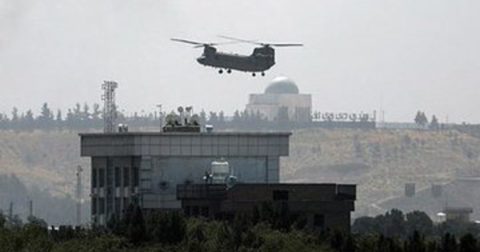
A Boeing CH-47 Chinook transport helicopter appears over the U.S. embassy compound in Kabul, 15 Aug 2021. Image from Twitter via libertyunyielding.com
To reprise a line from a decade-old column of mine:
Afghanistan is about Afghanistan – if you’re Afghan or Pakistani. But, if you’re Russian or Chinese or Iranian or European, Afghanistan is about America.
That’s the point to remember: if you’re an Afghan schoolgirl, today is the fall of Kabul; elsewhere, in the chancelleries of allies and enemies alike, it’s the fall of America. Even by their usual wretched standards, the world’s most somnolent media are struggling to stay up to speed on the story. Here’s the scoop from USA Today:
Taliban’s Afghanistan Advance Tests Biden’s ‘America Is Back’ Foreign Policy Promise
You don’t say! Did he misread the prompter, or mishear the guy in his ear? “America is on its back”, surely?
But don’t worry, the world’s most lavishly over-funded “intelligence community” is on the case:
Kabul Could Fall To The Taliban Within 90 Days, U.S. Intelligence Warns
Thank you, geniuses. That was Thursday. So it turned out to be well within ninety hours — which is close enough for US intelligence work.
Was this the same “seventeen intelligence agencies” who all agreed Russia had meddled in the 2016 election — and with whose collective intelligence only a fool would disagree?
Or perhaps it was only one intelligence agency — most likely the crack agents of the highly specialized Federal Unitary Central Kabul Western Intelligence Tracking Service.
To modify Hillary Clinton, what difference at this point would it make if the US government simply laid off its entire “intelligence community”?
Indeed, what difference would it make if it closed down its military? Obviously, it would present a few mid-life challenges for its corrupt Pentagon bureaucracy, since that many generals on the market for defense lobbyist gigs and board directorships all at once would likely depress the going rate. But, other than that, a military that accounts for 40 per cent of the planet’s military spending can’t perform either of the functions for which one has an army: it can’t defeat overseas enemies, and it’s not permitted to defend the country, as we see on the Rio Grande.
So what’s the point?
Oh, oh, but, if a nation doesn’t have an army to defend it, a quarter-of-a-million foreign invaders could just walk into the country with impunity every month!
The scale of America’s global humiliation is so total that I see my friends at Fox News cannot even bear to cover it. As I write, every other world network — the BBC, Deutsche Welle, France 24, not to mention the Chinese — is broadcasting the collapse of the American regime in real time; on Fox, meanwhile, they’re talking about the spending bill and the third Covid shot and the dead Haitians … as if the totality of the defeat is such that for once it cannot be fixed into the American right’s usual consolations (“well, this positions us pretty nicely for 2022”).
On the leftie side, of course, the court eunuchs have risen as one to protect the Dementia Kid, and are working as hurriedly as the Kabul document-shredders in an effort to figure out a way to blame it all on Trump.
Of course, retreating from Kabul is kind of a western military tradition:
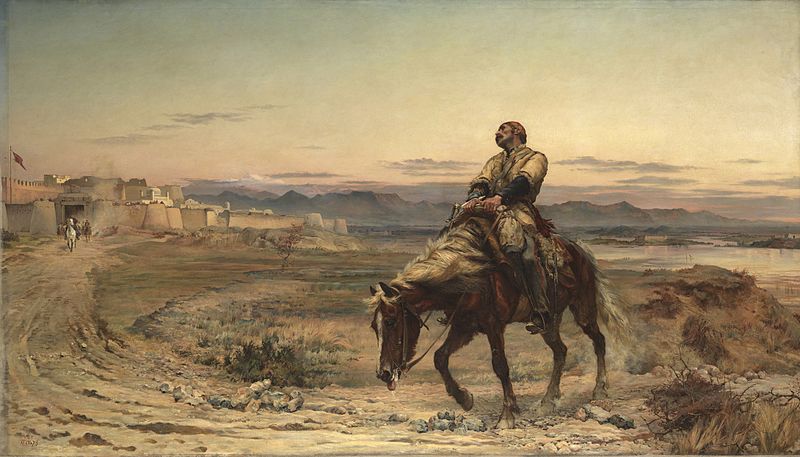
Remnants of an Army (1879) by Elizabeth Butler portraying William Brydon arriving at the gates of Jalalabad as the only survivor of a 16,500 strong evacuation from Kabul in January 1842.
Public domain image via Wikimedia Commons.
The remnants of an army, Jellalabad (sic), January 13, 1842, better known as Remnants of an Army, is an 1879 oil-on-canvas painting by Elizabeth Thompson, Lady Butler. It depicts William Brydon, assistant surgeon in the Bengal Army, arriving at the gates of Jalalabad in January 1842. The walls of Jalalabad loom over a desolate plain and riders from the garrison gallop from the gate to reach the solitary figure bringing the first word of the fate of the “Army of Afghanistan”.
Supposedly Brydon was the last survivor of the approximately 16,000 soldiers and camp followers from the 1842 retreat from Kabul in the First Anglo-Afghan War, and is shown toiling the last few miles to safety on an exhausted and dying horse. In fact a few other stragglers from the Army eventually arrived, and larger numbers were eventually released or rescued after spending time as captives of Afghan forces.



